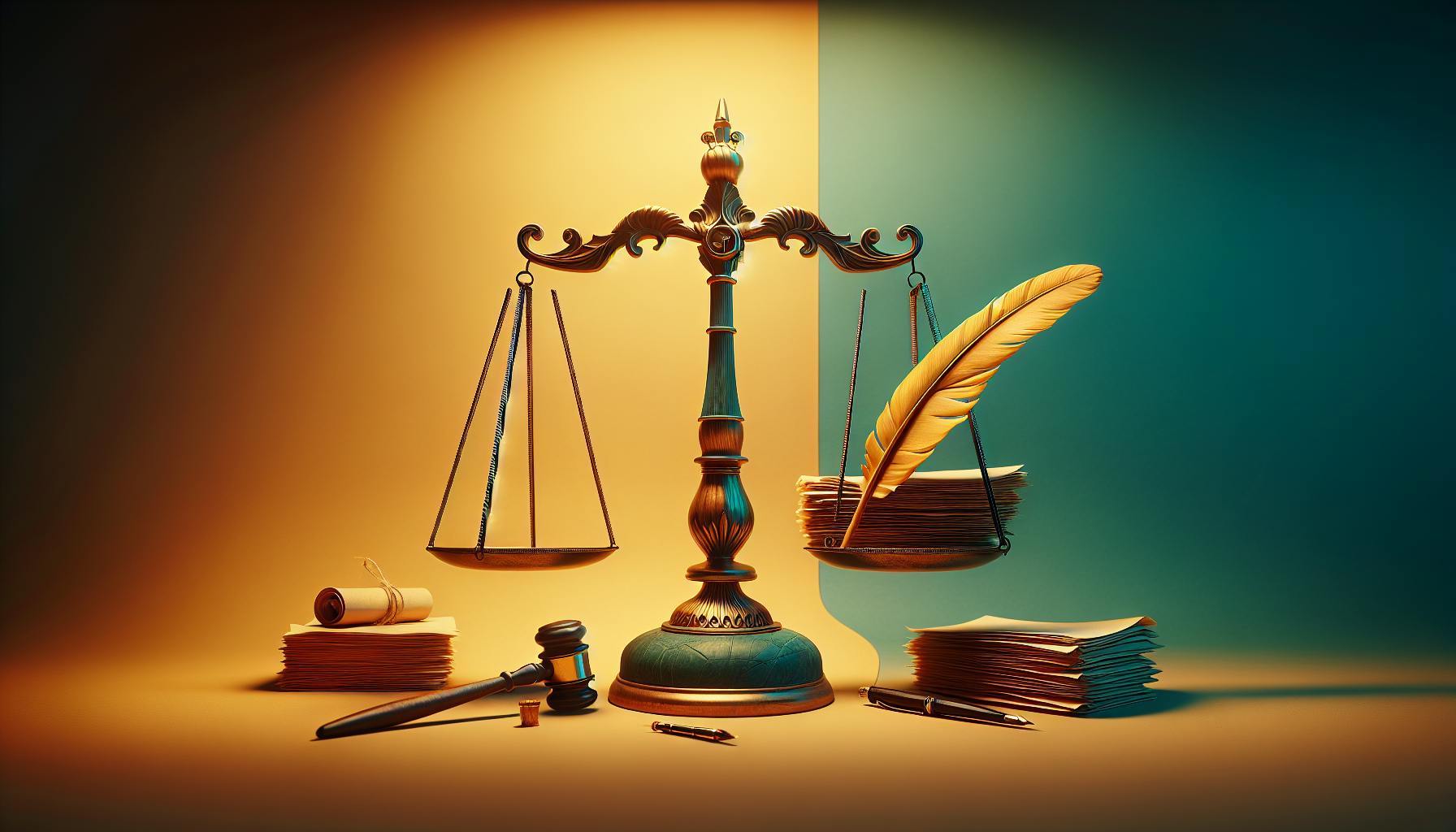Most would agree that cases involving prominent political families often create intense public scrutiny and debate.
The trial of William Kennedy Smith brought scandal to the storied Kennedy political dynasty, raising difficult questions around consent, privilege, and justice.
In this article, we will objectively analyze the details surrounding the trial, including the alleged incident, prosecution and defense strategies, forensic issues, and the final verdict. We will also situate it within the complex history of Kennedy family scandals and the mythology of the "Kennedy curse."
The Trial of William Kennedy Smith and Its Place in Kennedy Family Lore
William Kennedy Smith was the nephew of President John F. Kennedy and Senator Ted Kennedy. In 1991, Smith was accused of sexually assaulting Patricia Bowman at the Kennedy family estate in Palm Beach, Florida. This launched a highly publicized trial that brought scrutiny onto the storied Kennedy political dynasty.
The trial captured national attention given the Kennedy family's status as American royalty. It also recalled past scandals, such as the 1969 Chappaquiddick incident involving Ted Kennedy. Many saw parallels between how the Kennedy men avoided accountability in these situations.
Ultimately, Smith was acquitted of the rape charges in 1991. But the trial tarnished his reputation and was another chapter in the so-called "Kennedy curse." It showed how wealth and privilege seemed to shield this powerful family from the usual standards of justice.
The saga highlighted issues of consent, victim-blaming, and "rape culture" that still resonate today. Coming during the height of the "Me Too" movement, recent re-examinations of the case shed new light on gender dynamics and abuse of power.
The Incident at the Kennedy Estate in Palm Beach, Florida
A Fateful Night Out with Senator Ted Kennedy
On the evening of March 30, 1991, Patricia Bowman and her friend Anne Mercer met Senator Ted Kennedy and his nephew William Kennedy Smith at a popular Palm Beach nightclub. According to reports, the group socialized and had drinks together over the course of the evening.
An Invitation Back to the Kennedy Estate
Later that night, Kennedy invited Bowman and Mercer back to the family's Palm Beach estate. At the estate, the group continued drinking by the pool. Accounts vary regarding the exact sequence of events, but Bowman stated that at one point she was separated from Mercer and ended up alone with Smith, who she alleged raped her by the poolside. Smith denied that any sexual contact occurred between them.
The Rape Allegation by Patricia Bowman
According to Bowman's testimony, Smith tackled her by the pool, removed her underwear, and raped her. She claimed to have resisted and told him to stop multiple times. Smith stated that while some consensual kissing occurred by the pool, no sexual intercourse took place. The conflicting accounts sparked intense media coverage and scrutiny of the Kennedy family.
The Arrest and Charges Against William Kennedy Smith
William Kennedy Smith, nephew of Senator Ted Kennedy, was questioned by police in Palm Beach, Florida in the days following an incident at the Kennedy estate on Good Friday in 1991. A 29-year-old woman had accused Smith of sexually assaulting her that night.
After initial questioning, Smith was arrested on sexual battery charges in May 1991. The charges alleged that Smith had tackled the woman to the ground and raped her outside the Kennedy mansion after they left a bar together.
The high-profile case drew massive media attention due to Smith's ties to the Kennedy political dynasty. The trial was controversial from the beginning, with debates around consent and victim-blaming.
Defense lawyer Roy Black pursued aggressive tactics, working to undermine the credibility of Smith's accuser. The case highlighted issues surrounding privilege and unequal access to justice.
Ultimately, after only 77 minutes of deliberation, the jury returned a verdict of not guilty on all charges. Smith was acquitted, avoiding what could have been a 15-year prison sentence. The outcome was seen by many as another example of the Kennedy family escaping consequences.
The William Kennedy Smith Trial Becomes a Media Spectacle
The 1991 Palm Beach rape trial of William Kennedy Smith, nephew of Senator Ted Kennedy, became a media spectacle unlike any seen before.
With the Kennedy name involved, immense public and media interest quickly surrounded the case. The trial was broadcast on Court TV, captivating viewers across the nation. The public was fascinated by the scandal's mix of power, privilege, family secrets, and sexual misconduct.
Many questioned if William would face accountability or receive special treatment due to his family's political dynasty. The case embodied ongoing discussions around consent, victim-blaming, and famous men evading consequences.
As the trial progressed, the media delivered nonstop coverage. The public voraciously consumed each detail revealed - the exclusive Kennedy estate, William's late-night carousing, the alleged violent assault.
Media vehicles staked out the courthouse, providing live updates. Talk shows endlessly debated each aspect of the case. Ultimately William was acquitted, but the trial spotlighted issues still relevant today regarding privilege, accountability, victim rights and media obsession with celebrity scandals.
Prosecution Strategy and Challenges in the William Kennedy Smith Trial
The prosecution in the William Kennedy Smith rape trial faced significant challenges in convincing a jury to convict. As a member of America's most famous political dynasty, Smith had immense privilege and resources to mount an aggressive defense.
Key Prosecution Strategies
- Paint Smith as an entitled scion who believed he could get away with assault
- Argue the trauma and distress displayed by the accuser showed nonconsensual activity occurred
- Use expert testimony to explain common victim responses to sexual assault
Major Hurdles Faced
- Sympathy for the Kennedy family in wake of recent tragedies
- Perception of the accuser as an unreliable witness due to her delay in reporting the incident
- High-powered defense team skilled at sowing reasonable doubt
The prosecution attempted to overcome these obstacles by appealing to the jury's sense of justice and morality. However, they ultimately failed to prove guilt beyond a reasonable doubt. The acquittal showed the immense difficulties of prosecuting rape cases, especially with defendants of great wealth and stature. Still, many questioned the verdict and its implications for privilege in the legal system.
sbb-itb-e93bf99
The Defense Team Led by Roy Black
The defense team for William Kennedy Smith was led by high-profile attorney Roy Black, who was known for successfully defending other prominent figures. Black argued that there were inconsistencies in Bowman's testimony and questioned her credibility as a witness.
Some of the key arguments made by the defense included:
-
Bowman gave inconsistent details about what happened in her initial interviews with police versus her testimony during the trial. This raised doubts about her memory of the events.
-
Bowman did not immediately report the alleged assault to police or seek medical attention. The defense argued this undermined her credibility.
-
There were no eyewitnesses or physical evidence to corroborate Bowman's testimony that she was sexually assaulted.
-
Bowman had invited Smith back to the Kennedy estate after meeting him at a bar. The defense used this to argue the encounter was consensual.
-
Bowman had a financial incentive to lie about what happened in hopes of getting money from the wealthy Kennedy family.
Overall, the defense team worked aggressively to undermine Bowman's credibility and introduce reasonable doubt in the minds of the jury about whether the encounter was non-consensual. With Black's experience defending high-profile clients, he was able to secure an acquittal for Smith after the jury deliberated for less than 80 minutes.
The Trial and Verdict: People Acquitted of Rape
William Kennedy Smith, nephew of Senator Ted Kennedy, was accused of rape in 1991 by Patricia Bowman. The case drew intense media scrutiny due to the Kennedy family's status as an American political dynasty.
Smith was ultimately acquitted of the charges by a jury. The trial highlighted issues surrounding consent, victim-blaming, and the privileges afforded to those with power and influence.
While a contentious case, we must uphold the presumption of innocence and respect the jury's decision. The aftermath left deep wounds for all involved.
Ultimately, this case underscores the need for thoughtful discourse and ethical reflection during times of scandal. As a society, we must strive to enact laws, policies and norms that protect rights and uphold justice - for accuser and accused alike.
The Kennedy Family Scandal and the Kennedy Curse
Historical Scandals of the Kennedy Family Tree
The Kennedy family has a long history of being in the public eye, which has inevitably led to scrutiny and scandal over the years. From Joseph P. Kennedy Sr.'s alleged ties to bootlegging during prohibition to Ted Kennedy's 1969 Chappaquiddick incident, the family has weathered its share of controversy.
Within this broader context, the 1991 Palm Beach rape trial of William Kennedy Smith added another chapter to the Kennedy family saga. As a nephew of President John F. Kennedy and Senator Ted Kennedy, William Kennedy Smith's trial captured international attention. Some saw the case as another example of the so-called "Kennedy curse," the notion that tragedy and scandal seem to follow the family.
The Myth of the Kennedy Curse
The idea of an actual curse on the Kennedy family is more myth than reality. However, a series of early deaths, accidents, scandals and other misfortunes have contributed to this perception over time.
William Kennedy Smith's trial and subsequent acquittal could arguably be seen as both perpetuating and defying the "curse." On one hand, the damaging publicity and scrutiny of yet another Kennedy embroiled in a serious legal case seemed to give credence to the curse.
On the other hand, unlike other Kennedy events with tragic outcomes, Smith managed to be acquitted of the charges against him. So while the trial and its coverage fueled the mystique of the Kennedy curse, the verdict itself went against the notion.
Aftermath and Legacy of the William Kennedy Smith Trial
The trial had significant personal and political consequences for those involved.
For Patricia Bowman, the trial brought intense public scrutiny and media attention. She faced criticism and accusations that undermined her credibility. Many felt the legal system failed her. The experience left emotional scars and a loss of privacy. She later became an advocate for sexual assault victims.
For William Kennedy Smith, though legally exonerated, the trial tainted his public reputation. He suspended his medical career for years due to the controversy. After the trial, he focused on real estate investments and philanthropy work. He kept a low profile, avoiding politics.
The scandal fueled criticisms of the Kennedy family's history of questionable behavior around women. It was another blow to the dynasty's image. Some credit the trial for encouraging the family to reform its ways in subsequent decades.
The case opened complex debates about sexual assault allegations, victim rights, abuse of power, and media sensationalism that still resonate today. It serves as a cautionary tale about the courtroom becoming an arena for public spectacle.
Ultimately, the trial left a lasting mark on American legal and political history while irrevocably shaping the lives of those most personally affected. Its legacy is a complex one still debated decades later.
Exploring the William Kennedy Smith Documentary
The 1991 trial of William Kennedy Smith, nephew of Senator Ted Kennedy, on charges of sexual assault captivated the nation. Smith was accused of raping Patricia Bowman, a woman he met at a Palm Beach bar. The case shone a spotlight on the Kennedy political dynasty and raised difficult questions about gender, power, and privilege.
Though Smith was ultimately acquitted, documentaries and media portrayals have continued to dissect the facts of the case. These examinations reveal deeper insights into the key figures, the conduct of the trial itself, and the surrounding social context.
Documentary Portrayals
Several documentaries have covered the William Kennedy Smith trial over the years. Films like The Kennedys: After Camelot (2017) and Scandalous: The Trial of William Kennedy Smith (1991) recreate the case in dramatic fashion. They profile the major players, dramatize the alleged crime, and analyze the role of celebrity and wealth in the final verdict.
Other documentaries take a more detached, journalistic angle. The recent People Magazine Investigates: Cracking the Kennedy Code (2019) features interviews with witnesses, prosecutors, and reporters who covered the original case. This clinical approach attempts to reconstruct the facts and invite viewers to draw their own conclusions.
Trial Tactics and True Justice
A key point of scrutiny in trial documentaries is the conduct of Smith's legal defense. Critics suggest the tactics of lead attorney Roy Black were more theatrical than factual. For example, some analysts believe putting Senator Ted Kennedy on the stand to vouch for his nephew's character was a calculated emotional appeal.
Ultimately, such portrayals question whether Smith's high-powered defense influenced the outcome more than the evidence itself. They ask viewers to consider complex issues around "justice" - were the charges properly investigated and proven beyond a reasonable doubt? Or did privilege and status enable Smith to evade rightful conviction? The documentaries prompt rich discussion around these difficult questions.
Social Context and Shifting Attitudes
Stepping back, the documentaries also contextualize the social attitudes around gender and sexual assault in 1991. They highlight how victim-blaming mentalities were more prevalent then compared to today.
For example, programs showcase how defense lawyers introduced Bowman's sexual history as evidence she "consented," a tactic prohibited by rape shield laws in many states now. They also note how female jurors at the time expressed hesitancy to "ruin a young man's life" over a he-said/she-said dispute.
Juxtaposing these past cultural norms against modern "Me Too" sensibilities underscores how much still needs to change around issues of believing survivors. But it also shows how far public awareness has come in just a few decades. Documentaries can have value not just in re-examining cold cases, but in prompting viewers to reflect on their own biases in an evolving social landscape.
Conclusion: Reflecting on the Political Dynasty and Scandal
The 1991 Palm Beach rape trial of William Kennedy Smith brought intense scrutiny on the Kennedy political dynasty. As the nephew of President John F. Kennedy and Senators Robert and Ted Kennedy, William was the latest Kennedy family member to face scandal.
The trial centered around accusations by Patricia Bowman that William had raped her after a night out at local bars. With Senator Ted Kennedy present at the estate that night, the case carried political undertones. High-profile attorney Roy Black led William's defense team, attacking Bowman's credibility. After a short deliberation, the jury acquitted William on all charges.
The trial was a flashpoint for debates around privilege, gender dynamics, the legal system, and the Kennedy "curse." It reinforced public perceptions of the Kennedy clan as a family plagued by controversy and immune to accountability due to their power and status.
Ultimately, William avoided legal consequences. But for many, shadows still loom over the storied Kennedy name. The trial serves as an emblem of scandal and the complex relationship between justice, politics, and public opinion.


